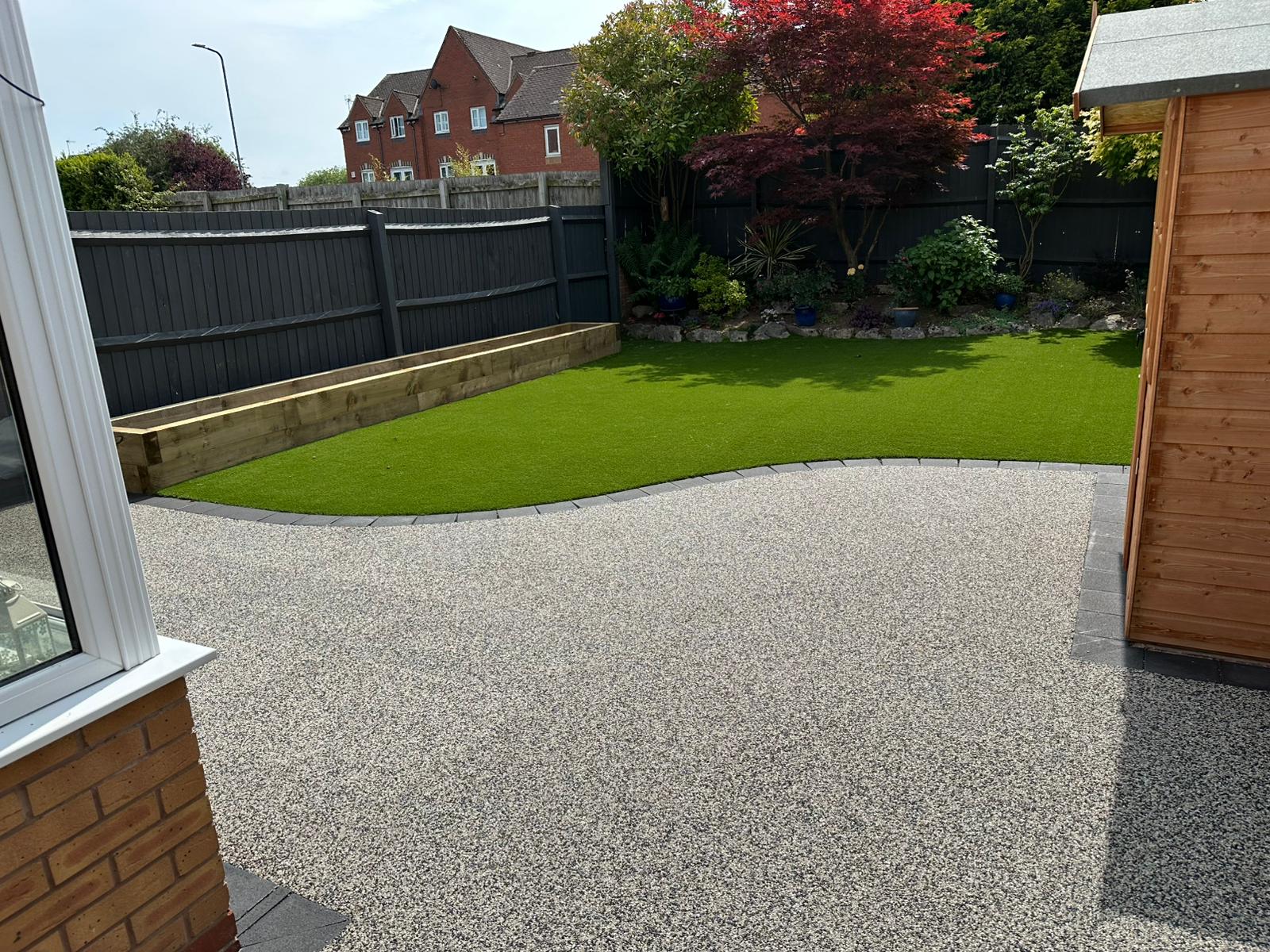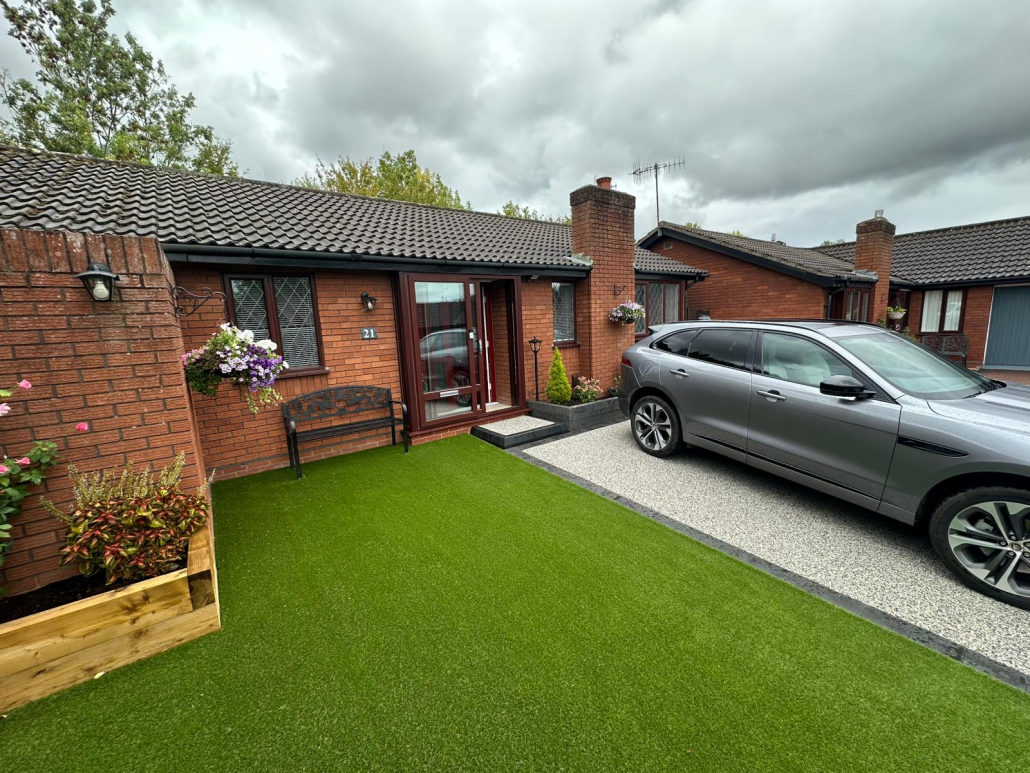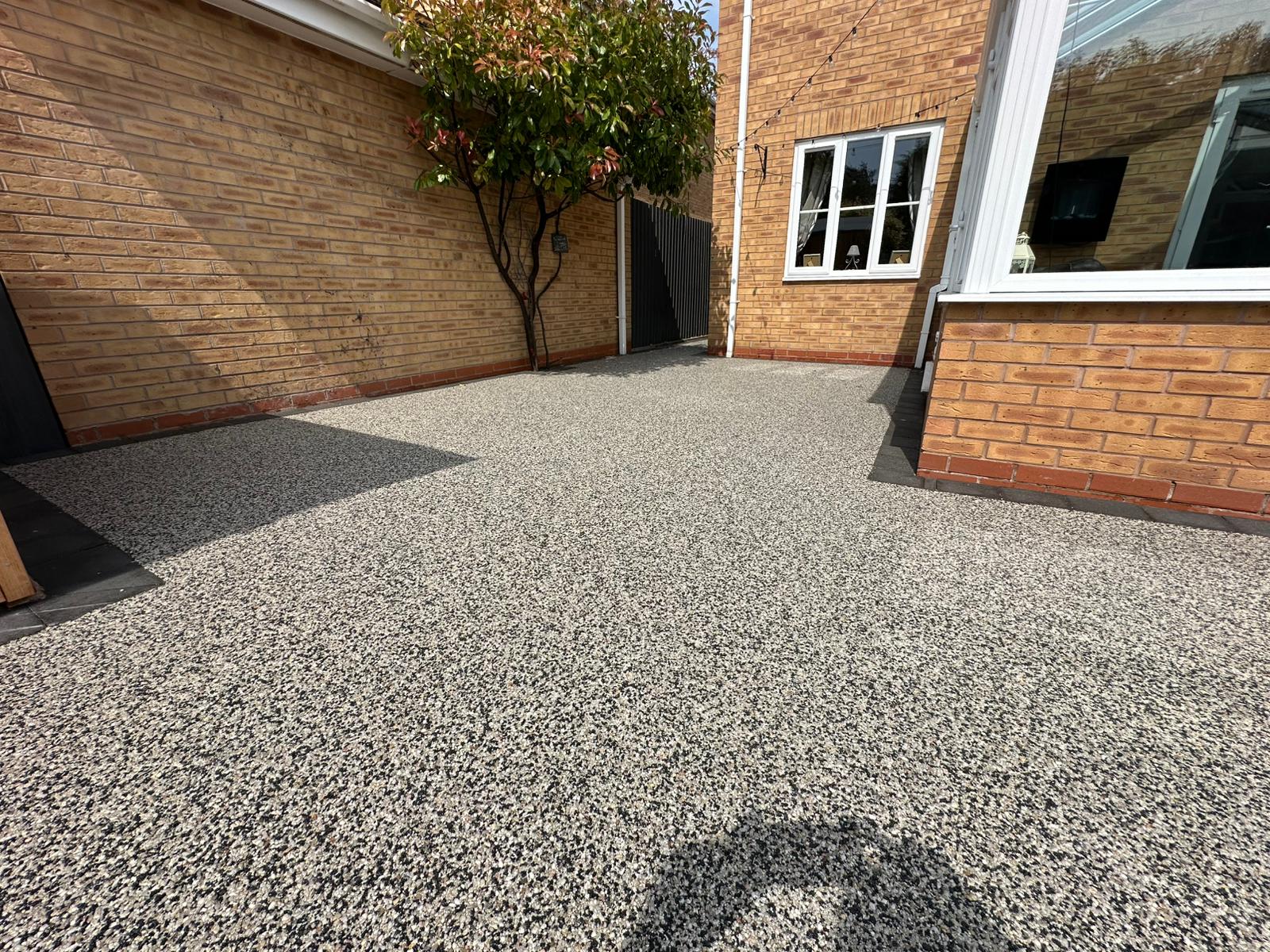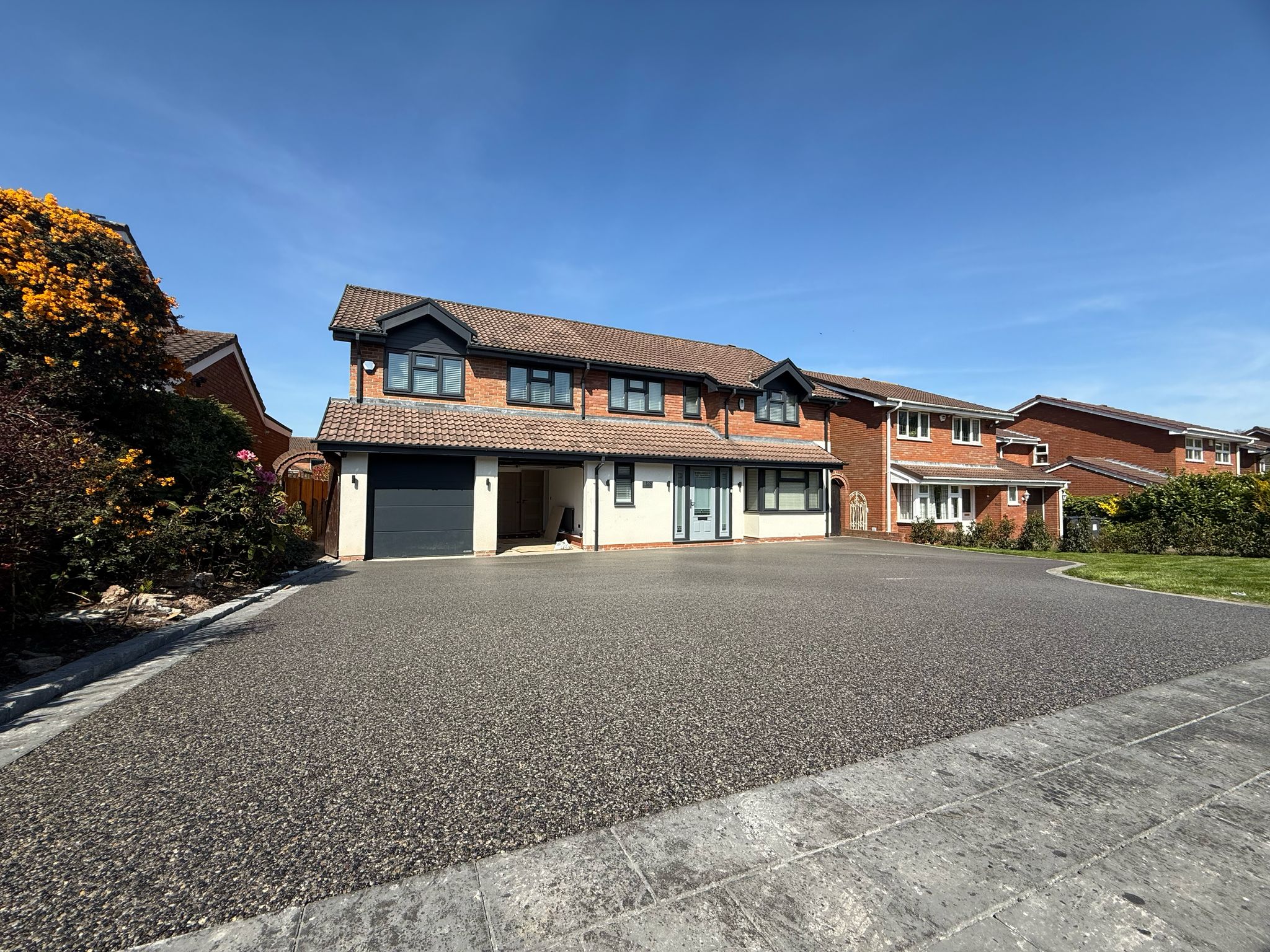The Hidden Costs of Cheap Resin Driveways: How to Vet Installers and Avoid Common Failures
A low quote for a resin driveway can be tempting, until the first winter frost, the first heavy downpour, or the first tyre turning circle exposes what’s really underneath. With resin bound systems in particular, the quality of the base, the materials and the installation discipline determine whether you’ll enjoy years of low‑maintenance use or face costly remedial works. Here’s how to spot red flags, understand where budget quotes cut corners, and choose Consumer Resin, a West Midlands installer you can trust.
Why “cheap” becomes expensive
- Base shortcuts: The biggest hidden cost is poor groundwork. Skipping excavation, using the wrong sub‑base (e.g., MOT Type 1 instead of Type 3 for a permeable build‑up), or inadequate compaction leads to movement, cracking and ponding that no surface layer can hide.
- Non‑UV resin: Some installers save on materials by using non‑UV resin. Pale blends amber quickly; patchwork colour differences appear at joints and repairs.
- Under‑thickness: A driveway needs around 15–18 mm of resin bound (depending on aggregate size). Laying thinner to save materials diminishes strength and shortens life.
- Wrong aggregate grading: Bargain mixes may contain inconsistent or dusty aggregate that weakens the bond and clogs permeability.
- Improper mixing/working time: Resin is time‑sensitive. Over‑wetting, mixing too long/short, or stretching coverage creates weak, patchy areas—especially in turning circles.
How to vet a resin driveway installer Ask these evidence‑based questions and expect written answers:
- What base build‑up do you propose and why?
- Look for: Permeable design for resin bound (Type 3/open‑graded sub‑base, geotextile, open‑graded asphalt binder where specified) or, if overlaying, a clear on‑plot drainage plan to permeable ground.
- Red flag: “We’ll go over what’s there” with no survey of levels, stability or drainage.
- What thickness and aggregate size will you install?
- Look for: 2–5 mm angular aggregate at 15–18 mm thickness for driveways; thicker for heavier use areas.
- Red flag: Vague “around a centimetre” or “we’ll see on the day.”
- Is your resin UV‑stable and what’s the brand/spec?
- Look for: Named UV‑stable polyurethane binder with technical datasheets.
- Red flag: “All resins are the same” or refusal to share product info.
- How do you manage mixing and batch consistency?
- Look for: Calibrated kits, controlled mix ratios, consistent batch numbers, and a plan to avoid cold joints on larger drives.
- Red flag: Hand‑mixing approximations or no mention of batch sequencing.
- What’s your plan for edges, manholes and thresholds?
- Look for: Solid edging restraints (aluminium/stone), neat transitions, and raised damp‑proof course compliance.
- Red flag: “We’ll trowel up to whatever’s there.”
- Can you show local case studies and insurance/warranty?
- Look for: Installations in Birmingham/Solihull/Coventry etc., public liability insurance, workmanship warranty details.
- Red flag: Only stock photos, no references.
Comparing resin bound vs resin bonded
- Resin bound is the premium, permeable system suited to residential driveways when paired with a proper base. It costs more upfront but keeps you aligned with SUDS guidance and offers a refined, joint‑free finish.
- Resin bonded is non‑permeable and typically cheaper initially. It’s best for paths or heritage looks, but for driveways it can shed stone and requires managed runoff—sometimes incurring additional drainage costs or permissions.
Red flags in quotes and behaviour
- “We can start tomorrow” during peak season without a survey
- Cash‑only discounts, pressure tactics, unusually short warranties
- Refusal to specify thickness, resin type or base design
- Quotes far below market average with vague or missing line items
Common failures and what causes them
- Reflective cracking: Movement from a poor or cracked base mirrors through the resin layer. Cause: inadequate base preparation or untreated joints.
- Puddling/loss of permeability: Organic build‑up can block pores, but more often it’s an incorrect sub‑base or fines contamination. Cause: wrong base materials or poor site control.
- Raveling/stone loss: Aggregate sheds from areas that were under‑resined, mixed poorly or overworked when sticky.
- Colour patching/ambering: Non‑UV resin or inconsistent batches; poor jointing techniques between mixes.
- Edges breaking away: No proper edging detail or weak thresholds; lack of solid restraint.
Pricing transparency checklist Ensure the quote itemises:
- Site survey and base works (excavation depth, sub‑base type and thickness, compaction passes)
- Drainage solution (permeable build‑up or channels to soakaway within your boundary)
- Resin type (UV‑stable), aggregate specification (size, blend), and finished thickness
- Edging/threshold details and manhole treatments
- Waste removal, reinstatement, curing time/access guidance
- Warranty terms and aftercare plan
Site conditions that drive price
- Poor or unstable existing bases requiring excavation and rebuild
- Complex shapes, multiple levels, or extensive edging
- Access constraints affecting mixing logistics and curing control
- Larger stone sizes or decorative borders/bands
- Need for on‑plot drainage upgrades or soakaway installation
What a quality installation looks like
- Pre‑install: Formal survey, moisture and level checks, agreed drainage plan, confirmed batch schedule and colour
- Base: Correct excavation depth, compacted Type 3 (for permeable), clean working practices to avoid fines contamination
- Install day: Consistent mixing by kit, controlled working times, neat trowel finish, clean edges, protected cure window
- Handover: Care instructions, maintenance calendar, warranty, and photos of build‑up for your records
Maintenance still matters Even the best resin bound driveway needs light maintenance to keep pores clear and appearance sharp—regular sweeping, occasional fan‑nozzle washing, prompt stain treatment and leaf control in autumn. This protects your investment and preserves permeability.
Why Choose Consumer Resin
- Local expertise: Experienced across the West Midlands, familiar with local ground and drainage conditions.
- Proper base works: Advice and preparation that safeguard longevity and performance.
- Quality materials: UV-stable resin and carefully selected aggregates for colour stability and durability.
- Professional finish: Clean edges, neat thresholds, and attention to detail that lifts kerb appeal.
Get Your Personalised Resin Driveway Quote
Don’t let a “bargain” become a rebuild. Book a free site survey with Consumer Resin for a transparent, specification‑first quote and local case studies across the West Midlands.
Book your free driveway survey now!
Contact Consumer Resin or call 0121 716 0002.










